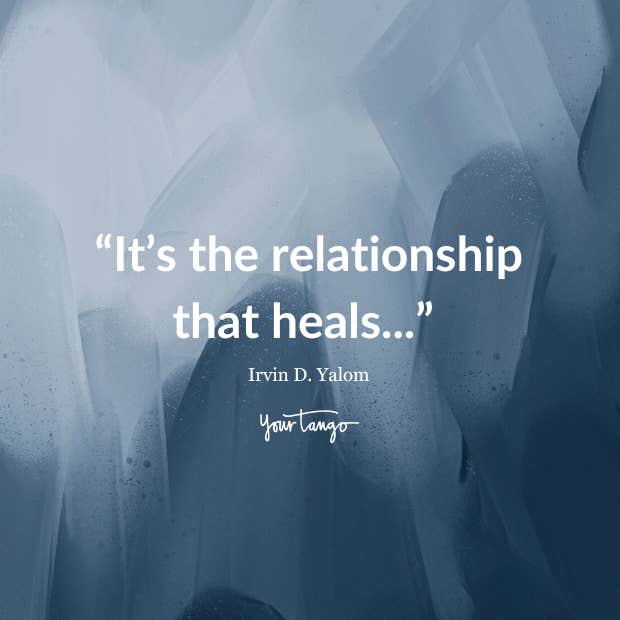3 Times You Definitely Need To Tell Your Therapist How You Feel About Them
Talking to your therapist about your work together is important to healing, even if it feels daunting.
 Ilonakozhevnikova / Shutterstock
Ilonakozhevnikova / Shutterstock The quality of your relationship with your therapist is perhaps the most important factor that will determine how much you benefit from psychotherapy.
From the work of Sigmund Freud, who originated “the talking cure” as a mechanism of healing, psychologists have emphasized that it’s the trustworthy, safe, respectful connection between client and therapist that ultimately serves to help us change in healthy ways.
In fact, the quality of the therapeutic relationship is so important that research suggests it’s often more important than any other aspect of therapy — including your reason for treatment, specific symptoms you may be experiencing, or how your therapist practices.
Yet, many people in mental health treatment find it hard to talk to their therapist about their relationship with them.
Early in therapy, it may be hard to be vulnerable, open, and honest with your therapist about your own struggles, let alone express anything about your perception of them as your therapist!
Talking openly to your therapist about your relationship with them can often feel daunting.
You may not want to hurt your therapist’s feelings or you may feel awkward about expressing your feelings about them to their face, but as existential psychiatrist Irvin D. Yalom wrote in his book Love's Executioner, "It's the relationship that heals."

Should you tell your therapist when something they are doing upset you?
The truth is that it’s healthy and important to have an open dialogue with your therapist about your relationship with them.
Not only is this good practice for being honest and vulnerable with people in your personal life about your experiences with them, but your therapist may not know something is bothering you unless you talk to them about it!
So, even if it feels awkward, try to talk to your therapist about what isn’t working for you because it often leads to a more productive working relationship.
Although you can talk to your therapist about anything, here are three situations in which I would encourage you to talk to them about your work together.
1. You feel stuck and your progress has stopped.
If you aren’t growing in ways that feel healthy and helpful to you, something needs to shift. If you feel stuck, it’s time to talk to your therapist about it.
2. You’re in conflict about a therapeutic goal.
When and if you enter therapy, you probably have goals for yourself. If you and your therapist are trying to get different outcomes or aren’t on the same page about how to attain those goals, it’s time to talk and try to align your aims.
3. You perceive your therapist to be unprofessional or unresponsive.
If you think your therapist is acting in an unprofessional way — they’re missing appointments frequently, can’t remember important information about you from previous sessions, fall asleep in session, or act in ways that seem dismissive—something needs to change.
If you’re feeling any of these, I encourage you to have an open conversation with your therapist about it. This gives you both a chance to regroup and decide whether you can shift some of your work together or whether it’s time for you to move on.
The bottom line is this: Like all relationships, there are times when a therapeutic relationship encounters transitions, bumps, or conflicts. Yet, the quality of your relationship with your therapist will strongly affect how much you benefit from treatment.
So, in moments of tension or discomfort, I strongly encourage you to have an open conversation with your therapist about it because it will help either by shifting your current working relationship or by ending it.
Cortney Warren, Ph.D., ABPP, is a clinical psychologist and adjunct professor of psychiatry at the University of Nevada Las Vegas (UNLV). She is also the author of Letting Go of Your Ex and Lies We Tell Ourselves.

